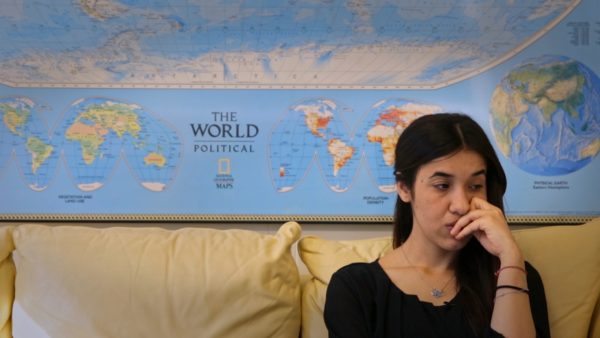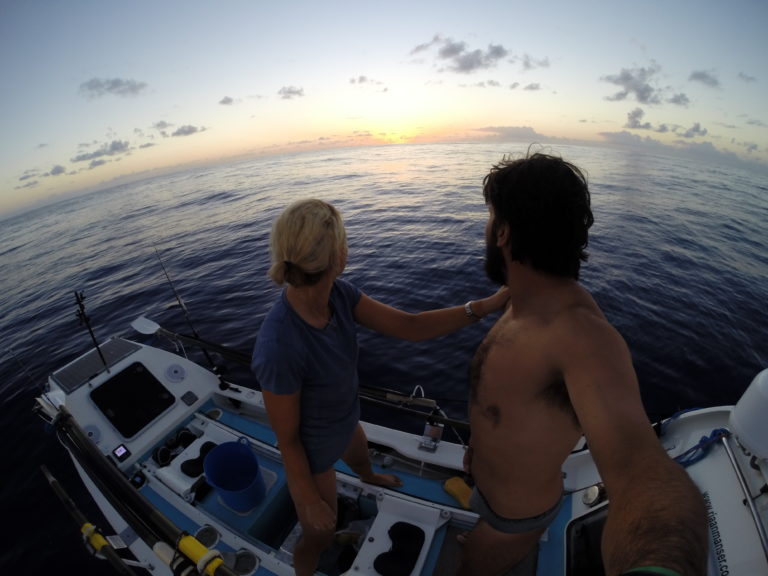Twenty-three-year-old Nadia Murad’s life is a dizzying array of exhausting undertakings—from giving testimony before the U.N. to visiting refugee camps to soul-bearing media interviews and one-on-one meetings with top government officials. With deep compassion and a formal precision and elegance that matches Nadia’s calm and steely demeanor, filmmaker Alexandria Bombach follows this strong-willed young woman, who survived the 2014 genocide of the Yazidis in Northern Iraq and escaped the hands of ISIS to become a relentless beacon of hope for her people, even when at times she longs to lay aside this monumental burden and simply have an ordinary life.
Summary info for schedule – will be hidden on film page

On Her Shoulders
94-minutes
Nadia Murad, a 23-year-old Yazidi, survived genocide and sexual slavery committed by ISIS. Repeating her story to the world, this ordinary girl finds herself thrust onto the international stage as the voice of her people.
Screening day / time
Check Back Soon
On Her Shoulders
Filmmaker(s)
- Alexandria Bombach – Director, Cinematographer, Editor
Running Time
Feature Film
94 minutes
Genres
Documentary
On Her Shoulders
Filmmaker Notes:
When Nadia Murad walks into a meeting—whether with a politician, a journalist, or a diplomat—there is a sense of tension. Understandably, it seems that for many it’s difficult to know what to say, what questions to ask, how to express that they care but at the same time not promise too much. They most likely know her wrenching story before she starts, yet no matter how much detail she gives, they also know they couldn’t possibly, truly understand her experience.
This is a film that explores that space—the distance between the victim and her voice, the fragility of human emotions that both provoke and hinder positive change, and the unbelievable resilience of a woman willing to sacrifice herself to play the media game that is modern advocacy.
The past four years of Nadia’s life have been unimaginable. On August 3, 2014, ISIS declared that the Yazidi people of Northern Iraq had long been a shame to their idea of Islam, and set out to commit genocide. An estimated 5,000 people were killed in the weeks that followed, and over 7,000 women and children were captured, forced to become sex slaves and child soldiers. Nadia was captured on the same day that ISIS killed her mother and six brothers. Eighteen members of her family were either killed or enslaved.
As she begins to tell her story, which I heard her recount over and over again, you might think that she would become used to it. But Nadia communicates the weight of her experience in her eyes. At the end of each and every meeting — through the business suits and flurry of handshakes, a long lens captures her sinking back into herself to recover— she is visibly drained.
I followed Nadia and the people working closest with her in the summer of 2016. From refugee camps in Greece to a memorial rally on the anniversary of the genocide in Berlin, to the House of Commons in Ottawa and the United Nations headquarters in New York, Nadia’s life is in constant motion. What I saw was an exhausting process, with no real roadmap for success. I started to see her lose faith in outlets that she had entrusted with her story. It seemed the incessant barrage of questions from the media turned to “How did they rape you” more often than “What can be done for the Yazidis?”
The platform of the victim, the survivor, is nothing to be taken lightly. Nadia herself knows that her words have moved people to take action. It is my hope that this intimate access into Nadia’s life off the podium will reveal the true struggles that a voiceless community faces in getting the world to act.
– Alexandria Bombach



